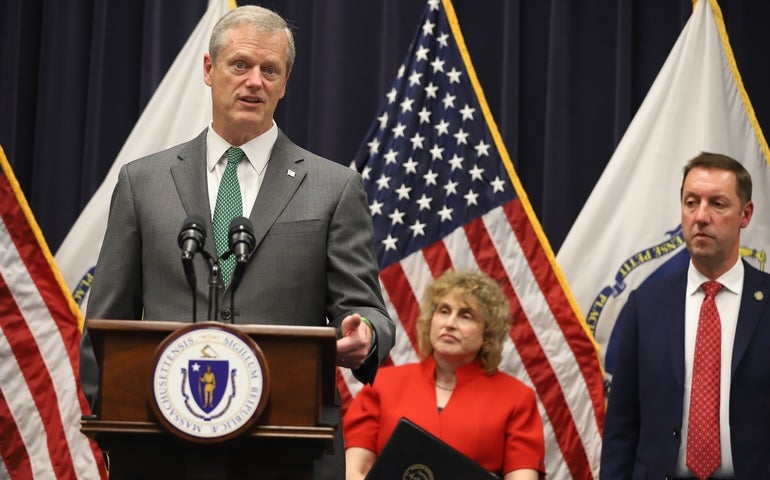Six Central Massachusetts regional transportation agencies received a portion of $4.2 million in grants to get commuters out of their cars and onto public transportation, in an effort by the Gov. Charlie Baker Administration to ease roadway congestion and reduce carbon emissions.
Massachusetts Department of Transportation Secretary Stephanie Pollack said the administration’s competitive Workforce Transportation grants are designed to encourage employers to assist employees commute to work using public or shared transportation. These 23 statewide grants will fund 21 groups, including regional transit authorities, municipalities, transportation management associations, and business organizations and others which have pledged to shift commuters from their vehicles to other modes of transportation.
The list of grant recipients in Central Mass. were:
- Central Massachusetts Regional Planning Commission received $33,000 for a feasibility study to establish a Central Massachusetts Transportation Management Association
- Franklin Regional Transit Authority will receive $278,365 to expand service
- MetroWest Regional Transit Authority will use $240,000 for public and commerce transit
- Montachusett Regional Transit Authority got $90,000 to expand the Fitchburg to Worcester shuttle
- Montachusett Regional Transit Authority received $262,000 for the Ayer-Shirley-Devens First Mile/Last Mile Pilot
- $294,000 for Worcester Regional Transit Authority for service between Webster and Southbridge
Baker said the money will allow employers to provide additional commuting options to their employees, increasing access to jobs, alleviating traffic congestion, and reducing greenhouse gas emissions
Last summer, MassDOT published “Congestion in the Commonwealth.” The report is the product of a data-driven analysis, and includes steps for how to respond to congestion and its challenges. The grant program is a direct result of one of these recommendations.
MassDOT is developing bus-on-shoulder pilot projects. So far, the MBTA has 10 miles of dedicated bus lanes in its system, and is anticipating expanding them.
The Baker administration has filed an $18-billion transportation bond legislationm which, in part, would provide funding to encourage and support more transit options. One section in the bill filed last summer authorizes $330 million in capital support for the 15 regional transit authorities to invest in fleets and facilities.
The measure also includes a new $50-million Transit Infrastructure Partnership Program, which would provide grants for transit authorities and municipalities to collaborate to provide bus lanes, transit signal priority and other infrastructure to keep buses moving.

